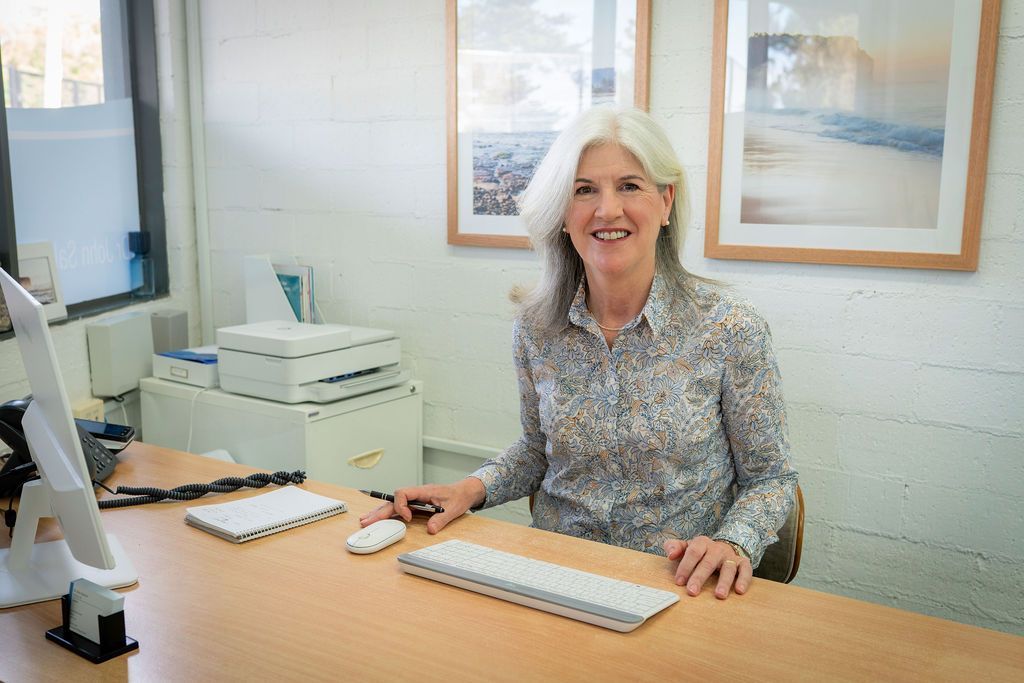Preventative Dentistry in Kiama
- Thorough check-ups with Dr Salmon
- Evidence-based prevention strategies
- Digital x-rays used when appropriate
Preventative dentistry is the ongoing care of your teeth and gums to help reduce the risk of dental problems. At Kiama Family Dental, we provide preventative dentistry to patients of all ages.
Preventative care includes check-ups and cleans, x-rays, oral hygiene education and protective treatments such as fissure sealants. These services are designed to produce healthier outcomes, reduce the need for future treatment and give you peace of mind about your oral wellbeing.
Whether you're looking to stay on top of your dental health or want professional advice tailored to your needs, call Kiama Family Dental on
(02) 4233 1313
to book your appointment today.
What Preventative Dentistry Involves
Preventative dentistry includes treatments that aim to keep your teeth and gums in good health. This approach reduces the risk of common issues such as tooth decay, gum disease and enamel wear. A typical appointment will involve a thorough check-up and clean and advice tailored to your oral health needs.
During a clean, Dr Salmon gently removes plaque, tartar and staining from your teeth and gums. This helps improve the appearance of your teeth and results in fresher breath. While cleaning, he also checks for early signs of tooth decay and gum disease and may recommend further treatment if necessary.
For children and teens, fissure sealants may be suggested. These protective coatings are applied to the deep grooves of molars and premolars – areas prone to collecting bacteria and food debris. Fissure sealing is non-invasive, does not require drilling or anaesthetic and helps reduce the risk of decay in susceptible teeth.
X-rays will be recommended when there is a clinical need. Not all tooth decay is visible during an exam, and imaging allows for early diagnosis of problems below the surface. We use a digital system that reduces radiation exposure compared to traditional X-rays. These are typically only taken at initial appointments or when required for diagnosis.
Why Ongoing Preventative Care Matters
Identifying problems earlier helps reduce the need for more complex or invasive treatment later. Regular check-ups also give Dr Salmon the ability to track changes over time and recommend care based on your unique needs.
Ongoing care helps preserve your natural teeth, maintain function and reduce the impact of issues such as gum disease, enamel loss or decay. It’s also an important part of managing oral health alongside medical conditions like diabetes or dry mouth, where regular monitoring can make a meaningful difference.
With preventative dentistry, you’re not just maintaining your teeth – you’re taking an informed, proactive step toward long-term health and wellbeing.
Frequently Asked Questions
What does preventative dentistry include?
Preventative dentistry includes regular check-ups, professional cleaning, oral hygiene education and diagnostic tools like digital x-rays. It may also involve fluoride application, dietary guidance and the use of fissure sealants in children to help reduce the risk of decay. These appointments allow dentists to detect early signs of disease and offer guidance to support oral health at home. Preventative dentistry is tailored to each patient and can greatly reduce the need for more complex treatment.
How often should I have a check-up and clean?
Most people benefit from a check-up and clean every six months, but this varies based on your oral health needs, age, and risk factors. People with a history of gum disease, heavy plaque buildup, medical conditions or high decay risk may require more frequent visits. These appointments allow your dentist to clean areas that are difficult to reach at home, monitor any changes and provide guidance on how to care for your teeth between visits.
Are X-rays always required during a dental check-up?
Not always. X-rays are an important diagnostic tool, especially for detecting early-stage tooth decay or issues not visible during a standard exam. However, they’re only recommended when clinically necessary – such as during an initial consultation or when monitoring specific concerns. Many dental practices now use digital X-ray systems, which offer lower radiation exposure compared to traditional methods. Your dentist will explain why and when X-rays are recommended as part of your personalised care plan.



